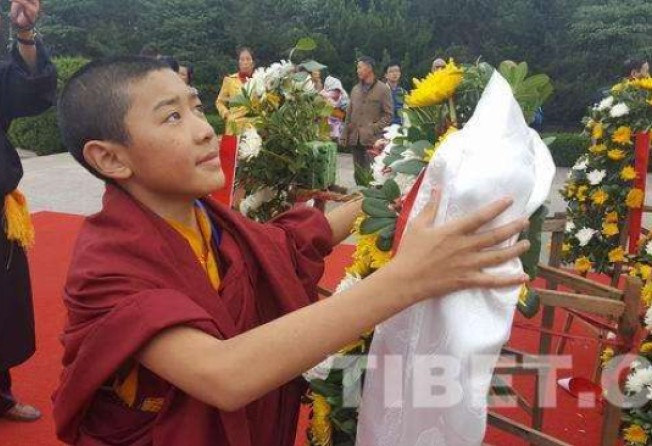Tibet’s ‘Living Buddhas’ taken on patriotic education tour to Mao’s hometown, other historic party sites
Holy men on Beijing-approved list vow allegiance to central government

Beijing has sent Tibetan “living Buddhas” to historic sites of the Communist Party, including the hometown of late leader Mao Zedong, for patriotic education sessions, according to Chinese media reports.
Some 20 living Buddhas took part in the sessions, in which they vowed allegiance to the central government, according to Tibet.cn, the region’s major news portal, on Saturday.
“I feel that our country is wealthy and powerful. It’s a socialist new China built by numerous martyrs,” said living Buddha Jedrung from Chamdo of the one-week session.
“We should make contributions to guide our religion to fit the socialist society.”
The session, which ended on October 28, took the Tibetan holy men to Jinggangshan in Jiangxi province, where the Communist Party once set up its own military base, and Shaoshan county, Mao’s hometown. The living Buddhas were also shown around a defence technology academy, to see “the latest development of the country in defence, industry and economy”, the report said.
There are more than 1,000 living Tibetan Buddhas on the mainland, according to Beijing’s official database, which was launched in January.
The October session was aimed at training some of the recently incarnated, including the fifth living Buddha Dezhub Jambai Gaisanggyaco, who was born in 2005.
A picture with the article showed him dedicating a khata, a scarf used by Tibetans to show gratitude and hospitality, to the bronze statute of the atheist Mao in the former leader’s hometown.
It was under Mao’s watch that Beijing went ahead with violent land reforms in Tibetan areas of Sichuan and Gansu provinces in the 1950s.
The move fuelled tensions between the Communist regime and the Tibetan government, which recognised Beijing’s sovereignty in 1951 but still retained control over its army.
The escalating tensions ultimately caused a military clash in 1957 and the exile of the 14th Dalai Lama, the Tibetan spiritual leader, who was then a deputy in the National People’s Congress.
The Dalai Lama was later labelled by Beijing as a separatist seeking independence for Tibet, while he insisted he only wanted genuine autonomy.
The training sessions were held by the United Front Work Department, an agency under the party that manages relations with non-party elites. Such sessions have been held for Tibetan living Buddhas before, and cover topics including religion, ethnicity and political education, according to the report.
Similar sessions have also been held for Christians, Taoists and Muslims on the mainland.